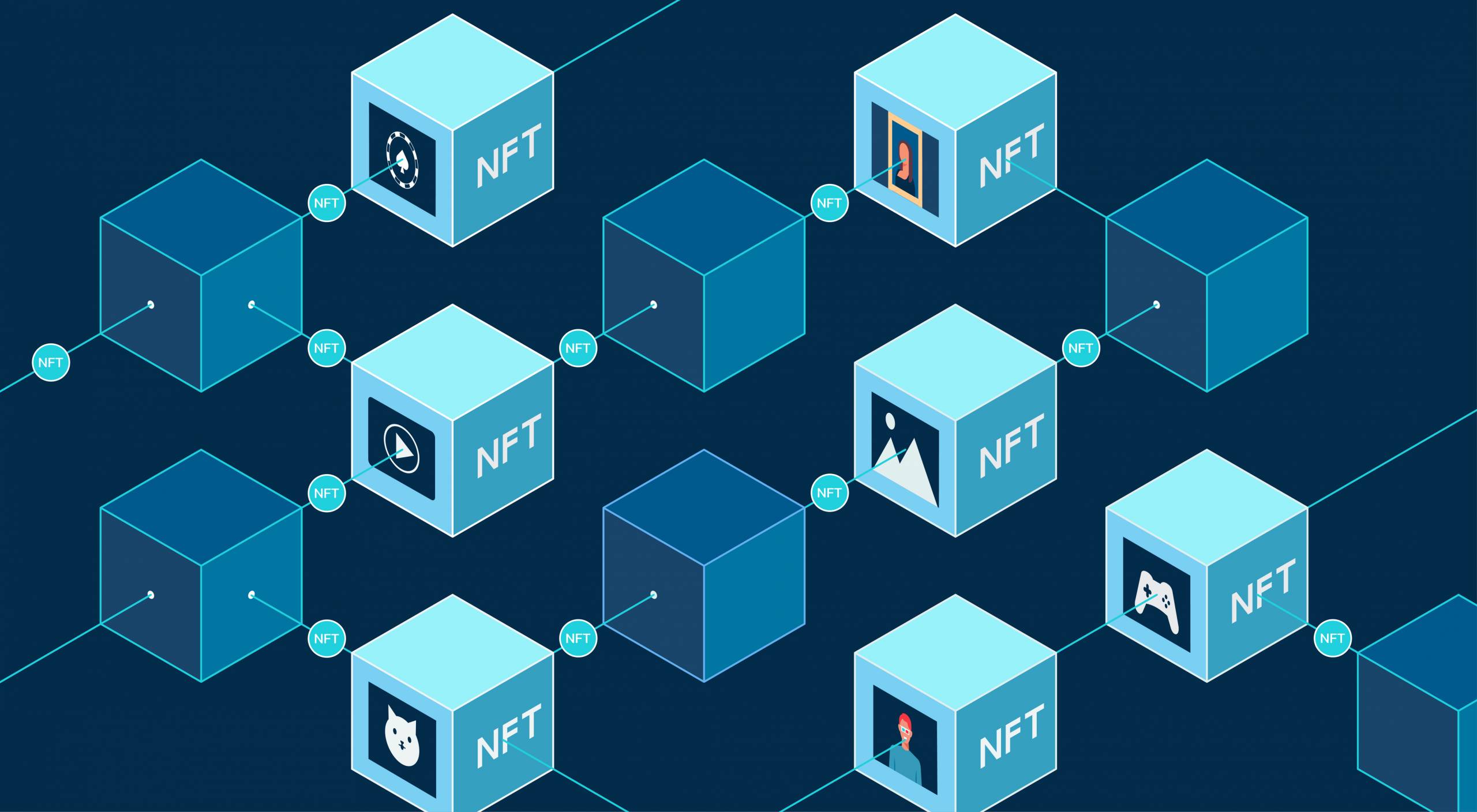If you’ve been online in 2021, you’ve probably come across the acronym NFT. Some non-fungible tokens (NFTs) are worth millions, others are essentially worthless, but the growth of the commodity has been astronomical and unavoidable. When an asset is this popular, it’s only natural to ask ‘is it a worthwhile investment vehicle?’
The short answer to this question is: no. The long answer is a lot more complicated than that, though. In this article, we’ll explore exactly what NFTs are, why they’ve grown to prominence and the reasons we’re reluctant to even refer to them as ‘investments’ at this point.
What exactly is an NFT?
So, what is an NFT? An NFT is a non-fungible token, a type of asset created with blockchain technology to prove the ownership of digital assets, which has been an underlying legal issue since people started sharing files online.
NFTs are, usually, built on the same foundations as cryptocurrencies like Bitcoin, but this is very much just a foundation. The usage of the assets differs greatly. The core difference lies in the ‘fungible’ nature of cryptocurrencies and the eponymously ‘non-fungible’ nature of NFTs. Cryptocurrencies can be exchanged and decimalised, NFTs cannot.
Ultimately, if you own an NFT, no one else can claim it. NFTs, largely held on the Ethereum blockchain – arguably the most promising blockchain in terms of practicality – cannot be traded and can only have one owner at any given time. If you own the NFT, you own all of it. In the case of widely shared tweets, audio files or images, owning the NFT acts more like a collector’s item than it does a currency or even an asset.
A simplistic comparison would be an autographed print. Yes, anyone can own the print for a relatively small fee, but the autograph adds value. If you have the only autographed copy of a particular print, you have a claim to it that other people don’t. The roots of the NFT boom can be found in a site called CryptoKitties, an interesting meditation on the value of ownership – you can read more about that particular craze here.
What is the blockchain?
In short, the blockchain is a decentralised, immutable record of transactions. This means that, while anyone can theoretically contribute to the record stored on the blockchain, no one centralised power has the authority to alter it. Immutability is absolutely fundamental to the technology and the assets associated with it.
So what does that actually mean? Well, it means that users can trade, take ownership of assets, spend money, all within the blockchain. This information is stored, ratified by a portion of the network and cannot be altered going forward. It is a permanent record of transactions designed to negate centralised operators like banks or trading platforms.
If that sounds complex – and it is – the Investopedia page is probably the best place to read about the basics.
Are NFTs worth buying?
The answer to this question ultimately comes down to your perspective. Just as with cryptocurrency, whether or not you believe they hold intrinsic value comes down to whether or not you see them as important technological developments. This will, inevitably, colour your opinion of assets stored on the blockchain.
Can the value of NFTs go up over time? Well, potentially. The value of an object like an NFT is simply what someone else would be willing to pay for it. This is to say that speculation and scarcity of supply are the key factors here. If you hold the NFT for a popular image, there is every chance that another collector may be willing to part with more than you spent to take it for themselves.
There are other ways to make money with NFTs, too. They are assets, first and foremost, so they can be leased out and collateralised to generate additional cash. They can also be included in royalty structures like that of SuperRare, a business that allows NFT artists to collect royalties whenever that art is sold on the secondary market. This is the true scope of NFTs for many people, the ability to commodify digital art – visual, audio or video – in a legally robust way.
Can NFTs be worthwhile investments?
Despite being assets, the scope for NFTs as investment vehicles seems, at this point at least, to be limited. This may change in the future, as new and varied uses for the technology begin to take shape – for now, though, the technology and the concept behind it are simply too nascent to consider them investments.
British peer and businessman Charles Allsopp has been unequivocal in his rejection of NFTs as a notion. “The idea of buying something which isn’t there is just strange,” he told the BBC. “I think people who invest in it are slight mugs, but I hope they don’t lose their money.” Proponents of the technology may point to Allsopp’s age and traditional financial background as a likely explanation of his views, but the point still stands.
This is, as far as many commentators can see it, a form of the art trade business done digitally. This is why more traditional investors have been left scratching their heads as to why NFTs are growing in popularity. We have, however, already seen other crypto assets like Bitcoin explode in not only popularity but value, despite having limited practical functionality for the most part.
The price of an NFT will depend on liquidity, scarcity of supply, utility and speculation around future value. They should be viewed as very high-risk investments, at least until a fully-fledged market develops and we see some proof of value. Ultimately, most people interested in buying NFTs are likely doing so for the enjoyment of collecting itself, with others buying them up just in case the price skyrockets. As for their place in the wider investment landscape, it is simply too soon to tell.





